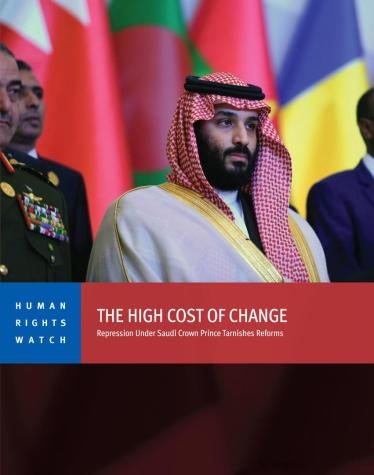“I Swear to Fulfill the Duties of Defense Lawyer Honestly and Faithfully”
Politically Motivated Crackdown on Human Rights Lawyers in Belarus
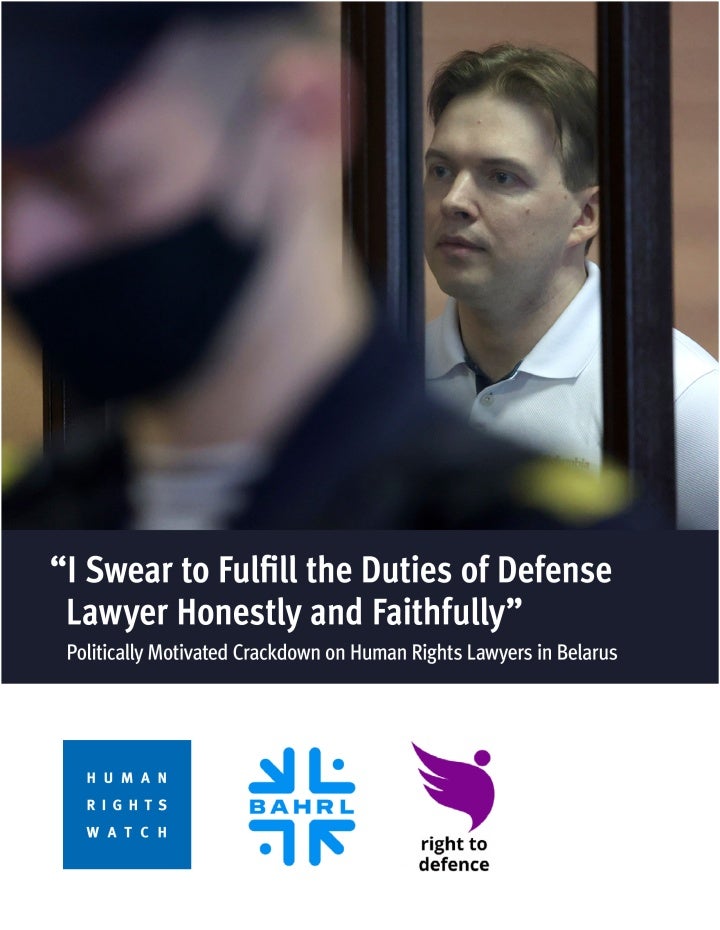
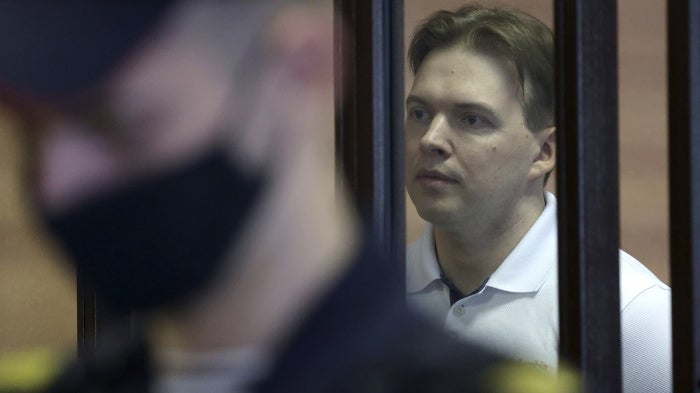
Politically Motivated Crackdown on Human Rights Lawyers in Belarus


This report highlights 27 cases of individuals or groups apprehended by ISIS and last heard of in its custody before the group’s military defeat. They include activists, aid workers, journalists, and anti-ISIS fighters from a range of groups, government and anti-government, as well as residents living under ISIS control. While the number of missing is uncertain, the Syrian Network for Human Rights has documented 8,143 cases of people detained by ISIS whose fate remains unknown.
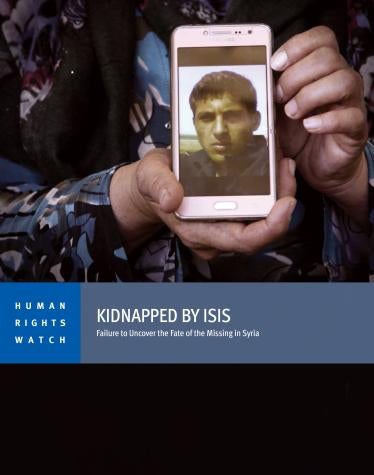
Most civilians were the targets of deliberate attacks, while others were killed by explosive devices indiscriminately placed on roadways. The report analyzes the lack of justice for these and past atrocities against civilians and pushes the government to hasten the disarmament of abusive armed groups and efforts to ensure justice, and for Mali’s partners to support these efforts.

The US government has deported people to face abuse and even death in El Salvador. The US is not solely responsible—Salvadoran gangs who prey on deportees and Salvadoran authorities who harm deportees or who do little or nothing to protect them bear direct responsibility—but in many cases the US is putting Salvadorans in harm’s way in circumstances where it knows or should know that harm is likely.
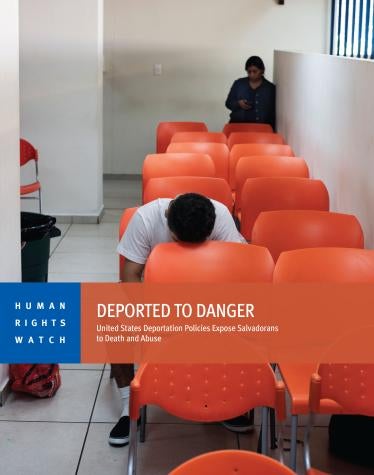
This report documents how since 2016 the government of Tanzania has cracked down on LGBT people and the community-based organizations that serve them. The Health Ministry in mainland Tanzania has prohibited community-based organizations from conducting outreach on HIV prevention to men who have sex with men and other key populations vulnerable to HIV. It closed drop-in centers that provided HIV testing and other targeted and inclusive services, and banned the distribution of lubricant, essential for effective condom use for HIV prevention among key populations and much of the wider public.
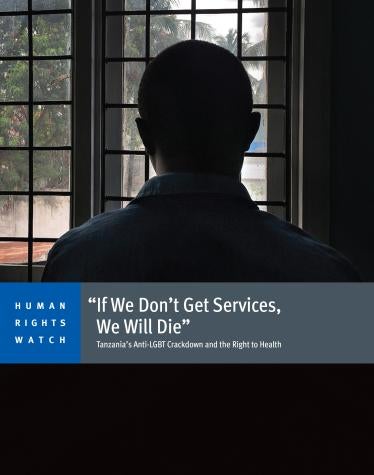
This report documents the arbitrary detention of street children for periods of up to six months at Gikondo Transit Center, in Kigali, the capital. It follows three Human Rights Watch reports in 2006, 2015, and 2016 on transit centers, including Gikondo, where ill-treatment and beatings are common. Since 2017, a new legal framework and policies under the government’s strategy to “eradicate delinquency” have sought to legitimize and regulate detention in so-called transit centers. But in reality, this new legislation provides cover for the continuing arbitrary detention of, and violations against, detainees, including children.
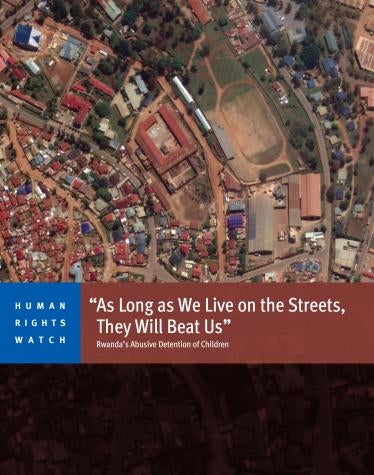
This report documents violations by the National Liberation Army (ELN), the Patriotic Forces of National Liberation (FPLN), and a group that emerged from the demobilized Revolutionary Armed Forces of Colombia (FARC). Abuses including murder, forced labor, child recruitment, and rape are often committed as part of the groups’ strategy to control the social, political, and economic life of Arauca and Apure. Impunity for such abuses is the rule.
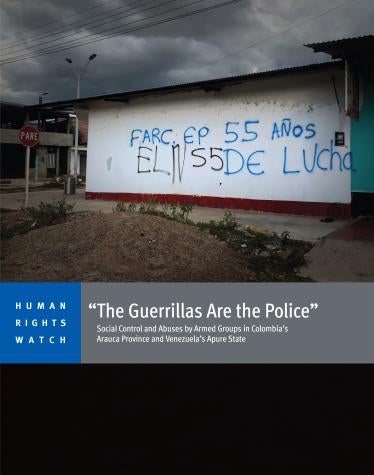
This report describes how dozens of brands and retailers are publicly disclosing information about their supplier factories. This has become a widely accepted step toward better identifying and addressing labor abuses in garment supply chains.

This report evaluates Israeli military orders that criminalize nonviolent political activity, including protesting, publishing material “having a political significance,” and joining groups “hostile” to Israel. Human Rights Watch examined several case studies to show that Israel unjustifiably relies on these sweeping orders to jail Palestinians for anti-occupation speech, activism, or political affiliations; outlaw political and other nongovernmental organizations; and shut down media outlets.
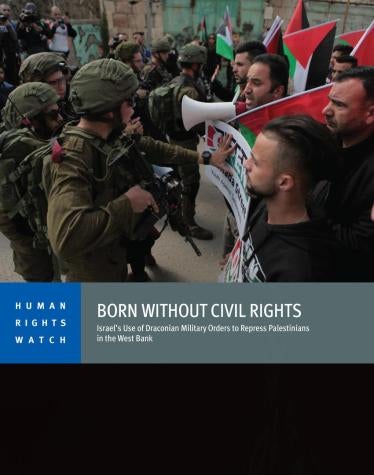
This report analyzes the Senegalese government’s policy, programming, and judicial efforts from 2017 to 2019 to address abuses against talibé children living in traditional Quranic boarding schools. It sets out a roadmap to end forced begging and abusive conditions in the Quranic schools, known as daaras.
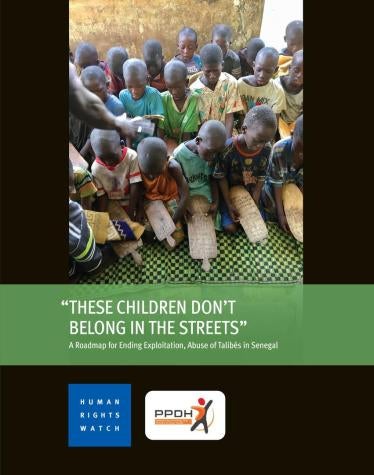
This report documents the campaign by the ruling National Council for the Defense of Democracy-Forces for the Defense of Democracy party (Conseil national pour la défense de la démocratie-Forces de défense de la démocratie, CNDD-FDD) with the youth wing and local officials to collect “voluntary” contributions from the population. Human Rights Watch found that people have been forced to pay multiple times or more than the officially requested amount, or were not given a receipt, exacerbating the situation.
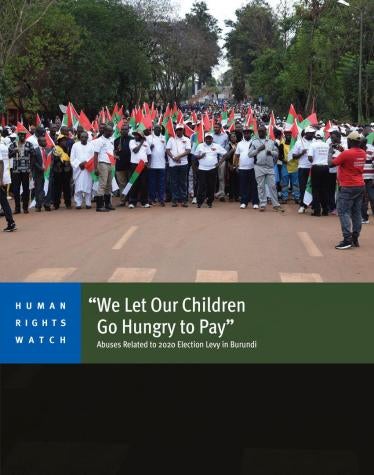
This report documents how Bangladesh prohibits aid groups in the refugee camps in the Cox’s Bazar district from providing Rohingya children with accredited or formal education. There is no secondary-level education, and groups are barred from teaching the Bengali language and using the Bangladesh curriculum. Rohingya children have no opportunity to enroll in or continue their education at private or public schools outside the refugee camps.
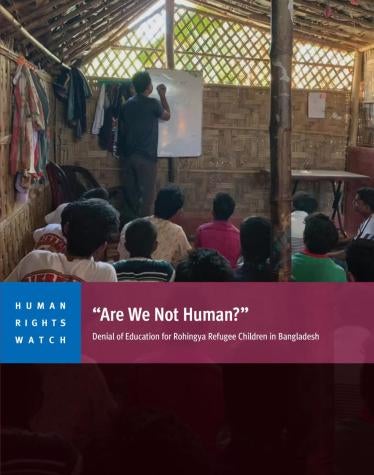
This report documents that investment banks owned by Belgium, Germany, the Netherlands, and the United Kingdom are failing to protect the rights of people working and living on three plantations they finance. Human Rights Watch found that Feronia and its subsidiary in Congo, Plantations et Huileries du Congo, S.A. (PHC), expose workers to dangerous pesticides, dump untreated industrial waste into local waterways, and engage in abusive employment practices that result in extreme poverty wages.
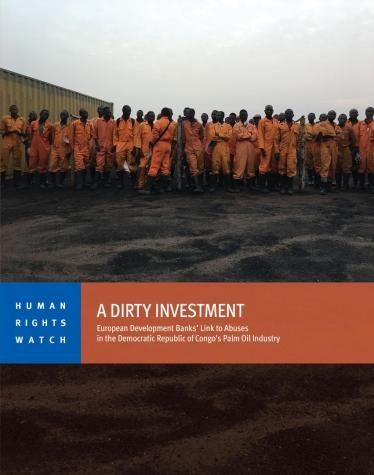
This report documents Sudanese security forces’ attack on the protesters’ sit-in camp in Khartoum on June 3, 2019 and in following days in other neighborhoods of the capital, Khartoum, and neighboring Bahri and Omdurman. Human Rights Watch also documented attacks on protesters leading up to the June 3 crackdown and a subsequent attack on protesters on June 30 in Omdurman.
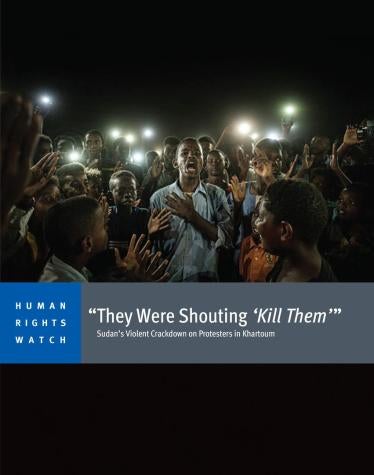
This report finds that powerful political and religious figures have increasingly used the country’s criminal insult and defamation laws against people leveling accusations of corruption and reporting on the country’s worsening economic and political situation. Convictions under these laws can lead to prison terms of up to three years. Parliament should urgently repeal the laws that criminalize speech, some of which date from Ottoman and French Mandate periods.
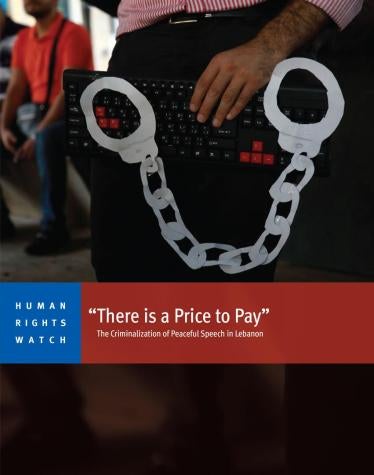
This report documents ongoing arbitrary and abusive practices by Saudi authorities targeting dissidents and activists since mid-2017 and total lack of accountability for those responsible for abuses. Human Rights Watch found that despite landmark reforms for Saudi women and youth, ongoing abuses demonstrate that the rule of law in Saudi Arabia remains weak and can be undermined at will by the country’s political leadership.
